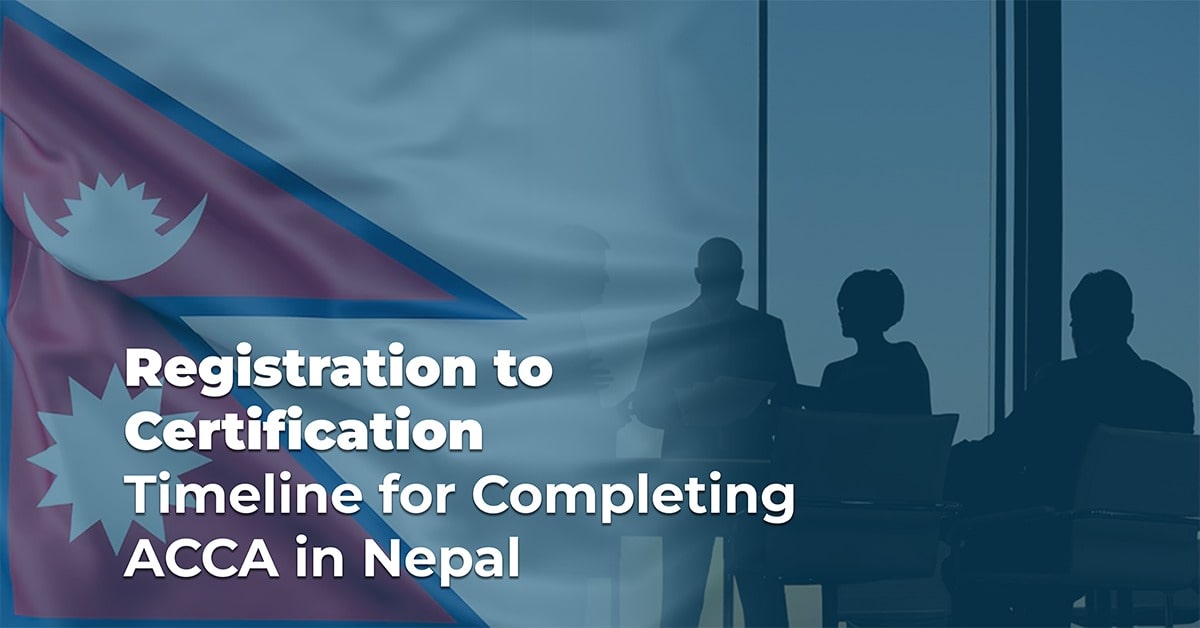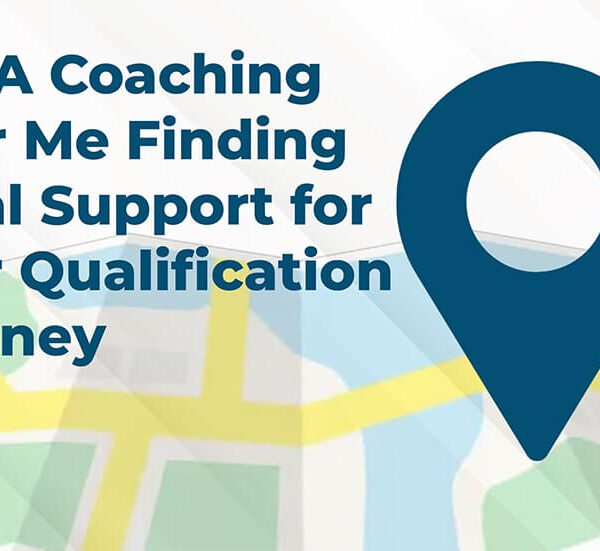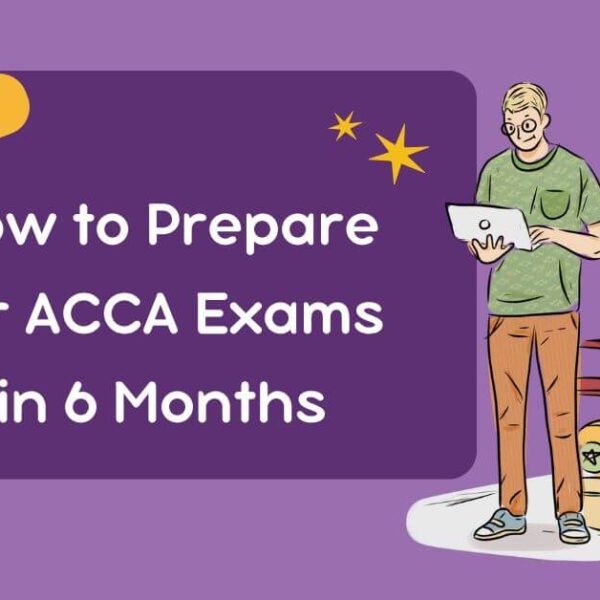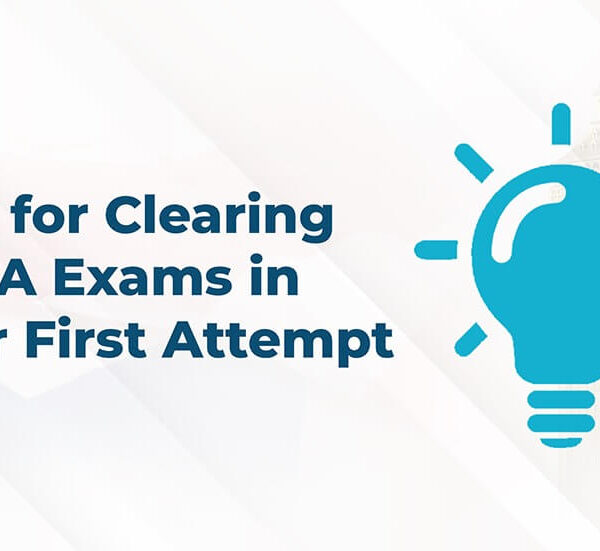The journey to becoming an ACCA-qualified professional represents a significant commitment of time and effort. For Nepali students considering this prestigious qualification, understanding the typical timeline from registration to final certification helps in planning their educational and career path effectively. This article provides a comprehensive overview of the ACCA journey in Nepal, including key milestones, typical durations, and strategies for efficient progression.
The ACCA Qualification Structure
The ACCA course in Nepal follows the global curriculum structure consisting of three main levels:
The Applied Knowledge level forms the foundation of your ACCA journey, introducing fundamental accounting concepts and principles. This level includes three exams: Business and Technology (BT), Management Accounting (MA), and Financial Accounting (FA). Most students in Nepal complete this level within 6-9 months, depending on their prior accounting knowledge and study intensity.
The Applied Skills level builds on these foundations with six more challenging exams: Corporate and Business Law (LW), Performance Management (PM), Taxation (TX), Financial Reporting (FR), Audit and Assurance (AA), and Financial Management (FM). This intermediate level typically requires 12-18 months to complete, with students usually attempting 2-3 papers per examination session.
The Strategic Professional level represents the final academic hurdle, with two Essential papers (Strategic Business Leader and Strategic Business Reporting) and two Optional papers chosen from four specialized areas. This advanced level typically requires 9-12 months of focused study, with many students spacing these challenging papers across multiple examination sessions.
Registration Process and Initial Timeline
The registration process for ACCA in Nepal is straightforward but requires careful planning. Initial registration can be completed online through ACCA’s global website or through registered learning providers. The process includes submitting educational certificates, identification documents, and payment of the registration fee.
From application submission to confirmation typically takes 2-3 weeks, though delays can occur during peak registration periods. New students should register at least one month before their intended first examination to ensure adequate preparation time. Most ACCA subjects in Nepal are available for examination four times annually (March, June, September, and December), providing flexible entry points for new students.
Upon registration approval, students gain immediate access to ACCA’s online resources, including past papers, examiner reports, and the Ethics and Professional Skills module. This early access period should be used to familiarize yourself with the ACCA study ecosystem and develop a comprehensive study plan spanning your projected qualification timeline.
Factors Affecting Completion Timeline
Several key factors influence how quickly Nepali students progress through the ACCA qualification:
Prior educational background significantly impacts early progression. Students with commerce or accounting backgrounds often complete the Applied Knowledge level more rapidly, sometimes benefiting from exemptions based on previous qualifications. Non-commerce students typically require additional preparation time for foundational concepts but often catch up in later stages.
Study mode choice substantially affects timeline projections. Full-time students dedicating 35-40 hours weekly to ACCA studies can progress more rapidly, potentially completing all exams within 2-3 years. Part-time students balancing work and studies typically require 3-5 years to complete all examinations, depending on their work commitments and available study hours.
Personal circumstances including family responsibilities, financial constraints, and health considerations inevitably influence progression rates. The flexible nature of ACCA allows students to adapt their timeline to accommodate life’s unpredictability, with many successful members taking strategic breaks during their qualification journey.
Practical Experience Requirement Timeline
Alongside examinations, ACCA requires 36 months of relevant practical experience, documented through the Practical Experience Requirement (PER). This component can be completed before, during, or after the examination phase, offering significant flexibility in career planning.
Many Nepali students begin accumulating practical experience after completing the Applied Skills level, when their knowledge base makes them valuable to employers. This approach typically results in overlapping experience acquisition with Strategic Professional level studies, potentially extending the overall qualification timeline but providing valuable income and practical learning.
Others focus on completing all examinations before pursuing full-time employment, potentially accelerating the academic component but requiring dedicated experience acquisition afterward. This approach typically appeals to full-time students with adequate financial support who can dedicate themselves entirely to examination preparation.
The optimal practical experience strategy depends on individual circumstances, with no single approach universally superior. Many successful ACCA members in Nepal report that balanced approaches—combining part-time work with ongoing studies—provide both financial sustainability and valuable contextual understanding that enhances examination performance.
Examination Session Planning
Strategic planning of examination attempts significantly impacts your ACCA timeline. The qualification offers four examination sessions annually, providing multiple opportunities for progression each year. Most successful students in Nepal establish a disciplined rhythm of preparation and examination, typically attempting 2-3 papers per session at the Applied Knowledge and Applied Skills levels.
At the Strategic Professional level, the increased complexity and integration of knowledge typically necessitates more focused preparation, with many students attempting only 1-2 papers per session. This measured approach improves pass rates while maintaining steady progress toward qualification.
Examination results are typically released within 6-8 weeks after completion. This interval should be factored into your planning, particularly if subsequent paper choices depend on previous results. Many students use these periods between examination and results to begin preparation for their next papers, maintaining continuous progress throughout their ACCA journey.
ACCA Subjects in Nepal: Strategic Sequencing
The sequence in which you attempt ACCA papers can significantly impact your learning experience and overall timeline. While some flexibility exists, certain logical progressions have proven effective for most Nepali students.
At the Applied Knowledge level, beginning with Business and Technology provides a contextual framework for subsequent accounting-focused papers. The Financial Accounting and Management Accounting papers build complementary skills that reinforce each other, making concurrent study efficient for many students.
The Applied Skills level benefits from careful sequencing. Many successful students begin with Corporate and Business Law, which stands somewhat independent of other papers. Following with Financial Reporting and Performance Management builds core technical skills that support later papers in Audit, Taxation, and Financial Management.
At the Strategic Professional level, completing Strategic Business Reporting before attempting optional papers ensures a solid technical foundation for specialized applications. The Strategic Business Leader paper, with its intensive integration of knowledge areas, is often most effectively tackled after building comprehensive understanding through other papers.
Challenges and Acceleration Strategies
Several common challenges affect ACCA completion timelines in Nepal. Examination failures inevitably extend qualification time, with retake preparation requiring additional months of study. Work-study balance challenges often emerge for those maintaining employment during their qualification journey, requiring periodic reassessment of examination loads.
Financial constraints sometimes necessitate pauses in examination progression, particularly for self-funding students balancing fee payments with living expenses. Life events including marriage, childbirth, family responsibilities, and health issues frequently impact study schedules, requiring flexibility and resilience.
Despite these challenges, several strategies can potentially accelerate your ACCA journey. Intensive study periods dedicated to specific examination clusters can increase paper completion rates, particularly during educational breaks or between employment periods. Examination exemptions based on prior qualifications potentially eliminate several papers, though careful consideration of knowledge gaps is essential before accepting exemptions.
Strategic resource selection focusing on high-yield study materials prevents time wasted on inefficient preparation approaches. Many successful students report that quality-focused study (emphasizing understanding and application) proves more time-efficient than quantity-focused approaches (emphasizing hours spent).
Conclusion: Realistic Timeline Expectations
For most Nepali students, the complete ACCA journey from registration to membership typically spans 3-5 years, depending on study mode, examination success rates, and practical experience acquisition approaches. Full-time students with prior accounting knowledge might complete the process in as little as 3 years, while those balancing significant work commitments typically require 4-5 years.
The ACCA course in Nepal offers flexibility that accommodates diverse personal circumstances, making the qualification accessible to motivated students regardless of their starting point or available study time. This adaptability represents one of the qualification’s greatest strengths, allowing customized approaches that align with individual career goals and life situations.
Rather than focusing exclusively on minimum completion time, successful ACCA journeys typically prioritize sustainable progression and knowledge retention. The qualification’s value lies not merely in certification but in the professional capabilities developed throughout the journey—capabilities that form the foundation for rewarding career trajectories in Nepal’s evolving financial landscape.








